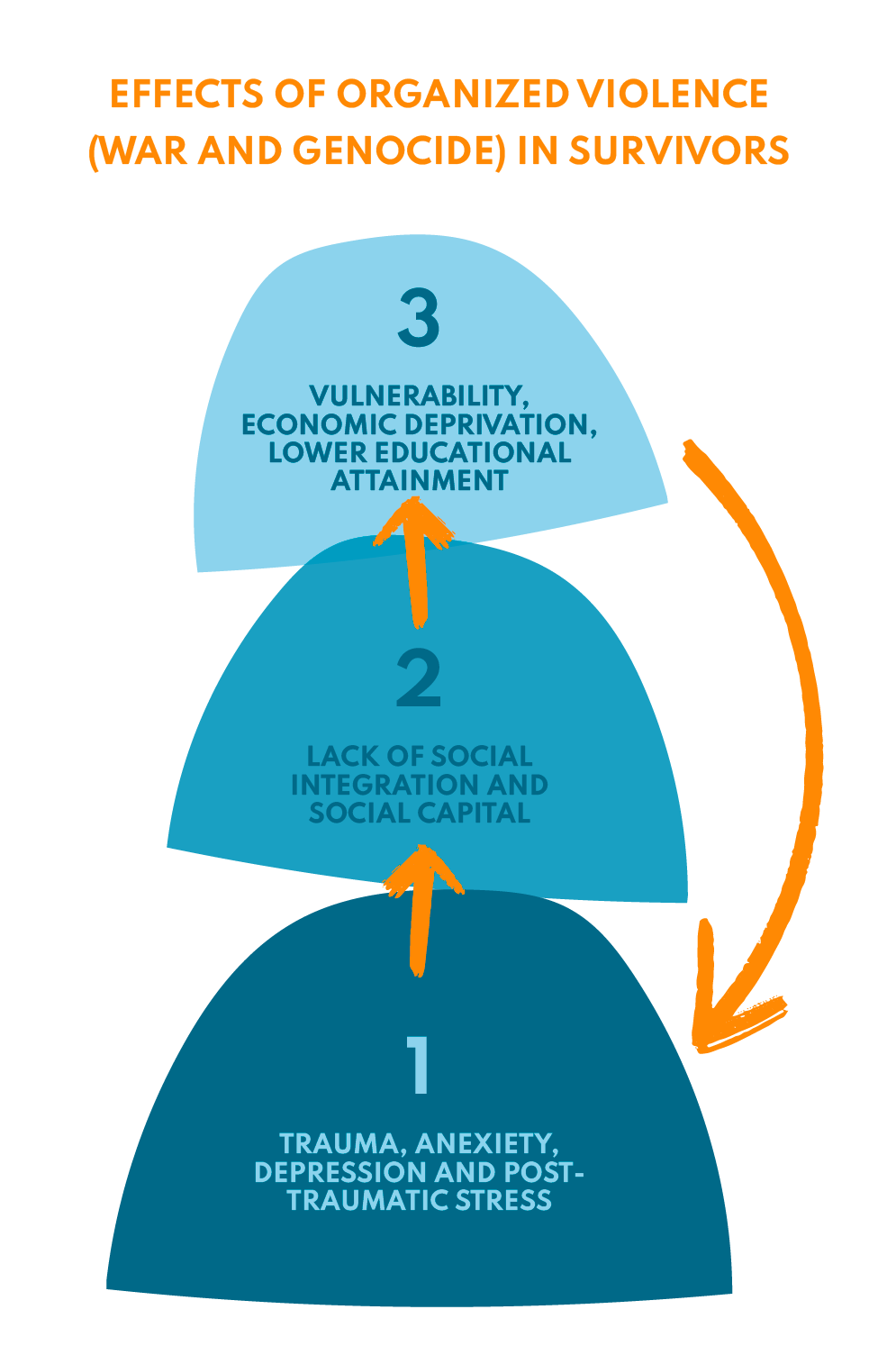OUR CONTRIBUTION


In 2022 many countries continue to immerse in organized violence. War and genocide are expressions of these brutal societal afflictions that have haunted societies for centuries. Survivors exhibit high rates of mental health and psycho-social problems due to the inconceivable, dehumanized brutality that most of them have had to experience. This affliction is later inherited through generations and the general social fabric is consequently destroyed due to losses of family members, growing mistrust and fear.
Exposure to traumatic stressors is a complex circumstance of life during and after wartimes, where the ambiguous and complex nature of victimhood in post-conflict societies is present.
The Cambodian genocide took place between 1975 and 1979 where at least 2 million civilians died, which represented a quarter of the population at that time. On the other hand, the Rwandan civil war and genocide occurred in 1994 and the death toll is around 1 million people who were killed during 100 days, where roughly 80 % of the Tutsi population was exterminated.


Living through war and genocid-al acts may lead to the development of mental health symptoms including anxiety, depression and posttraumatic stress (Schaal et al., 2012). Moreover, the experience of trauma may inhibit an individual’s ability to develop future positive relationships with others (Ronel and Elisha, 2011). The Cambodian and Rwandan genocides present parallel societal challenges where survivors and their families continue to present with considerable rates of PTSD and substantial depressive and anxiety symptoms. The data reveals that there’s a strong association between health problems and psychosocial factors such as social integration.
Finally, descendants of genocide survivors show a higher risk for mental health problems. A high trauma load as well as missing family integration and support characterizes their specific vulnerable situation. A great majority of the survivors from Cambodia were female and woman-headed households, proven to be especially vulnerable, suffering from the effects of economic deprivation, which includes a lack of food, housing and money for the education of their children (Kumar K., 2001). In parallel, by examining the impact of the Rwandan genocide on educational out-comes, there was an 18,3 % drop in average educational attainment among children exposed the genocide (Akresh and de Walque 2008) .
Years following the Cambodian and Rwandan genocides, the lasting imprints of the violence are still present, and individuals must process their grief and loss for communities to heal.

